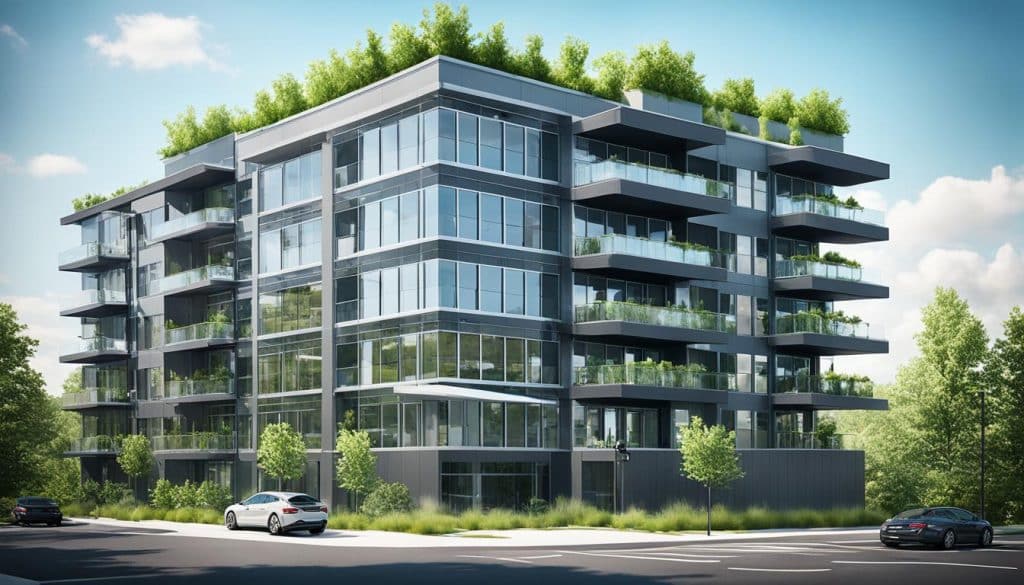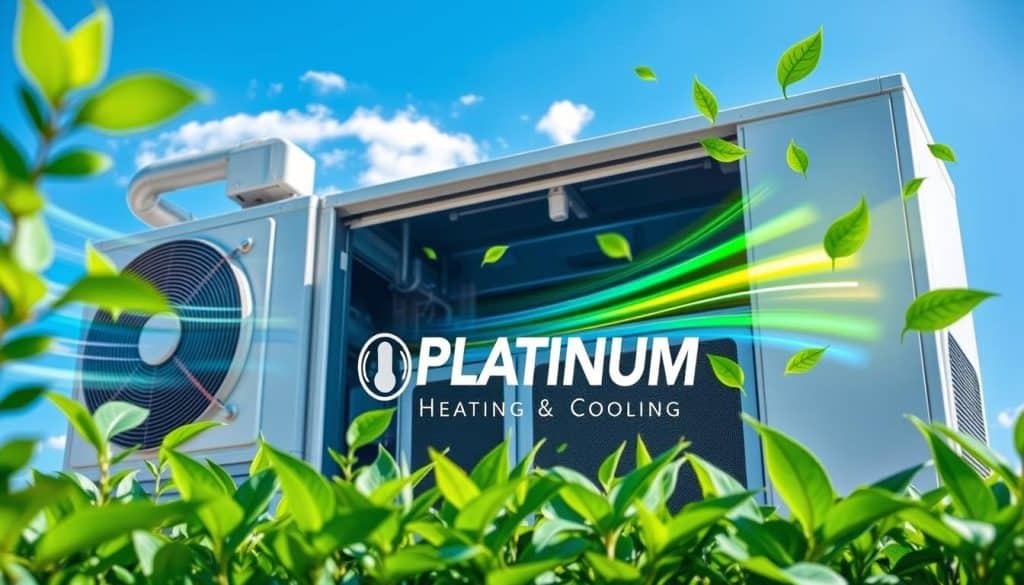Table of Contents
Can you really beat the summer heat without skyrocketing your electricity bills? Recent innovations in HVAC technology promise both eco-friendly living and big savings on your electricity. Many apartment dwellers wonder, “What is the most energy-efficient apartment AC system?” and often find that ductless mini-split systems provide the best solution for their cooling needs.
Solutions like ductless mini-split heat pumps, sophisticated furnaces, and advanced air conditioners are now leading the way. They allow apartment dwellers to enjoy comfort while cutting down on energy costs. Ductless mini-split heat pumps stand out because of their high efficiency, flexibility in heating and cooling, and ease of use in small spaces.
Key Takeaways
- Advancements in HVAC technology offer enhanced energy-saving solutions.
- Ductless mini-split heat pumps are highly efficient and versatile for apartment use.
- The most energy-efficient apartment AC system balances comfort with minimal electricity consumption.
- Factors including individual living space and climate determine the best choice for eco-friendly living.
- Energy-efficient HVAC systems embody the principles of green living.
Understanding Energy Efficiency Ratings
It’s important to know about energy efficiency ratings when picking the best HVAC systems for your apartment. These ratings show how well a unit uses energy to keep your space at the right temperature. Key metrics include SEER and EER ratings, AFUE, and HSPF. Each gives specific insights into how efficient an HVAC system is.
Seasonal Energy Efficiency Ratio (SEER)
The Seasonal Energy Efficiency Ratio, or SEER, shows how efficient an air conditioner is over a cooling season. It’s figured by dividing cooling output for a season by total electric energy input. Higher SEER ratings mean better energy use, which can cut down on electricity bills. Choosing units with ENERGY STAR certification can help even more.
Energy Efficiency Ratio (EER)
The Energy Efficiency Ratio (EER) measures a cooling system’s performance at its peak. It’s found by dividing cooling capacity (BTUs per hour) by power input (watts). EER ratings are key for understanding how well a system works on very hot days. They ensure the system uses energy efficiently, even in tough conditions.
Annual Fuel Utilization Efficiency (AFUE)
The Annual Fuel Utilization Efficiency (AFUE) shows how well a furnace or boiler uses fuel for heat. It’s a percentage that shows how much fuel is turned into heat and how much is wasted. Higher AFUE ratings mean more energy efficiency. This is crucial when picking energy-saving heating systems.
Heating Season Performance Factor (HSPF)
The Heating Season Performance Factor (HSPF) checks the efficiency of heat pumps in the heating season. HSPF ratings are found by dividing total seasonal heating output by total electricity used. Systems with high HSPF ratings are more efficient. This improves HVAC system efficiency and lowers costs.
Top Energy-Efficient Air Conditioning Systems for Apartments
Apartment dwellers looking for energy-saving cooling have many great choices. These options meet different needs and preferences. They help keep you comfortable while saving on energy and money.
Mini-Split Heat Pumps
Mini-split heat pumps are great for small apartments or cooling specific areas. They have high SEER ratings, making them perfect for both cooling and heating. Plus, they don’t need ductwork, which saves energy.
Window-Mounted AC Units
Window-mounted AC units are ideal for cooling single rooms in smaller apartments. They are very efficient, with high EER ratings, which means lower costs. They’re easy to install and affordable, making them a great choice for keeping your space cool.
Central Air Conditioning Systems
Central air systems are best for larger apartments, offering even cooling throughout. They’re often used in bigger homes but work well in apartments with efficient ductwork. New models, like solar-powered ones, are more eco-friendly. They ensure your apartment stays cool and comfortable.
Benefits of Energy-Efficient HVAC Systems
Energy-efficient HVAC systems offer more than just lower electricity bills. They are made to use less energy, saving money over time. They also improve indoor air quality by removing allergens and pollutants.
These systems also help the environment by using less fuel and producing fewer emissions. This is great for those who care about the planet and want to reduce their carbon footprint. The long-term benefits of using these systems are clear.
Energy-efficient HVAC systems last longer than older models. This means you won’t need to replace them as often. This can save you money on repairs and replacements.
Choosing energy-efficient HVAC systems is a step towards a greener future. They offer many benefits, from saving money to improving air quality and reducing environmental harm. They are a smart choice for modern apartments.
What is the most energy-efficient apartment AC system?
Choosing the right AC system for your apartment involves looking at several key factors. You need to consider the apartment’s size and layout, how well it’s insulated, and the local climate. The age of the building is also important for finding the best energy-saving solution.
Factors Influencing Energy Efficiency
Several important factors affect how efficient an apartment AC system is. The quality of insulation is a big one, as it helps the AC work better. The local climate, including humidity and temperature, also matters a lot. Knowing about SEER and EER ratings can give you a clear picture of how much energy the system will use.
Recommendations for Optimal Choices
To make the best choice for your HVAC needs, look for systems with ENERGY STAR certifications. These are known for being very efficient. Adding smart home tech can also help manage energy use better. Experts at Platinum Heating & Cooling recommend getting a custom AC system for your apartment. This approach can save you money on bills and help the environment.
Conclusion
Finding the most energy-efficient AC system for your apartment is a journey. It requires knowledge about energy ratings and insight into top HVAC systems. These systems offer big benefits.
When picking an AC system, consider your apartment size, local climate, and energy use. Making a smart choice boosts comfort and saves on energy. It also helps the environment.
Companies like Platinum Heating & Cooling are key in this journey. They offer HVAC services for homes and businesses. They help you choose and maintain the right system for your needs.
Choosing the right HVAC system improves your life and protects the environment. For help, contact Platinum Heating & Cooling at (616) 229-0444 or office@platinumheatingmi.com. They’ll guide you to a comfortable, eco-friendly home.



